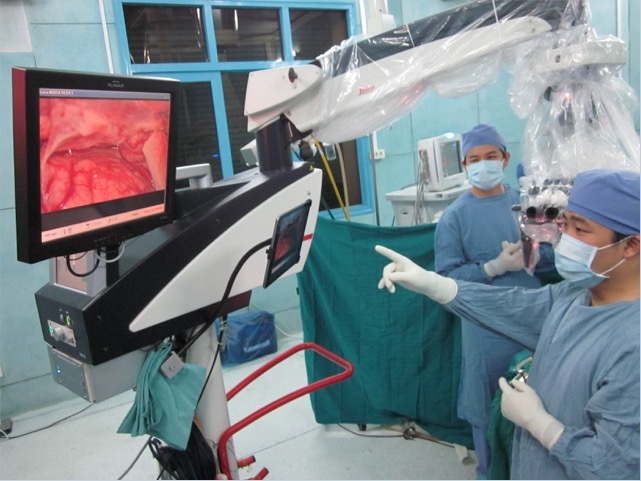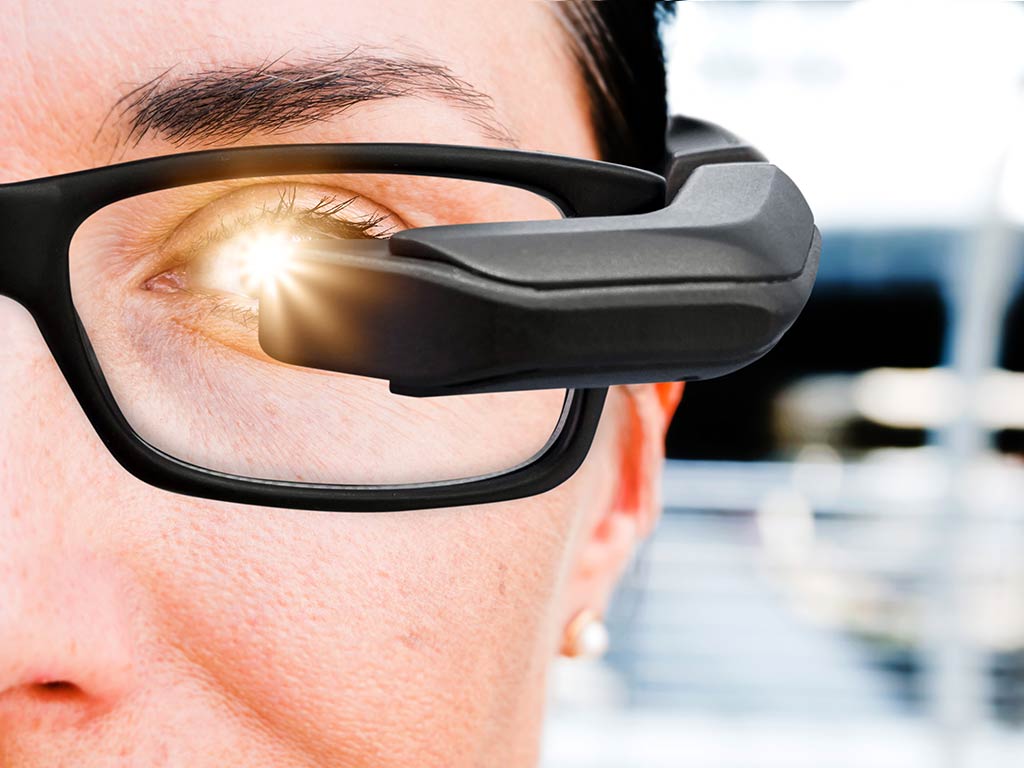Location information
Hospital address
Queen Elizabeth Central Hospital Post Office Box 95 Blantyre Malawi Malawi Malawi
Hospital type
Public
Hospital description
Tertiary/National
Description
Neurosurgery Unit
The Neurosurgery Unit is currently part of the Department of Surgery and was established in 2014 through the creation of the Neurosurgical High Dependency Unit (NHDU), a 7-bed ward for neurosurgical patients but also the opening of the Neurosurgery Operating Theatre (NOT) in the main operating theatre complex at Queen Elizabeth Central Hospital (QECH). The creation of these two facilities created an opportunity whereby we could conduct major neurosurgical operations safely but also monitor them after the operations in a dedicated unit and with specially trained staff. Currently other neurosurgical patients are also housed in the Chatinkha Nursery where they are accommodated with fellow new-borns, the Paediatric Nursery where all infants aged six months and below are admitted and the Paediatric Neurosurgical Ward (also known as the Paediatric Orthopedic Ward) where all children with neurosurgical problems older than 6 months are accommodated. Adult patients are managed in the male general surgery ward (5A) and the female general surgical ward (5B). Below we have a description of our facilities. Where this may not be news in other countries, our set up is rare in this region. This information is also helpful for those in high income countries who may be interested to come and experience neurosurgery in a low income country: at QECHNU, we have managed to create an environment where you can practice neurosurgery on tropical conditions but not miss the essential facilities you have in your home countries. This enhances your learning experience in a low income country as it reduces frustration.
The Neurosurgical High Dependency Unit
The NHDU can accommodate7 patients and is equipped with patient monitoring equipment. It has capacity to administer oxygen through oxygen concentrators and cylinders. Our very friendly, competent and dedicated nurses have received on-the-job specialised training in neurosurgical nursing care with help of our collaborators at Oslo University Hospital in Norway through 6 month attachments spent in Norway. Neurosurgical patients have special nursing demands since due to their neurological status they are usually not able to complain if they are having any difficulties. Also, as they deteriorate they fall into deep unconsciousness. Additionally, modern neurosurgery has many monitoring equipment including external ventricular drains, intracranial pressure monitors and many others. Neurosurgical nurses are therefore specially trained to monitor such conditions and equipment; skills which are too advanced for general nursing training. All neurosurgical patients whether they have had an operation or not require this specialised nursing. Currently, only the NHDU and the Paediatric Neurosurgical Ward have these specialised nurses. It is our hope that we shall have dedicated wards with fully trained neurosurgical nurses so that we can otpimise our patient care.
The Neurosurgery Operating Theatre - NOT (Theatre 3)
The NOT was specially designed and equipped with modern neurosurgical operating equipment which has made our operations much safer and shorter in operating time. We have high speed electric driven drills, a modern neurosurgical operation microscope, neuro-endoscopy unit, and many more modern instruments for micro-neurosurgery. All these have made our operations much safer and also reduced our operating time. Our operating theatre staff has also been specially trained in Norway in neurosurgical operating theatre nursing techniques. We have also hosted a number of senior operating theatre nurses from Norway for periods of six months who have mentored our nurses and helped create an efficient set up in our operating room making it one of the best run in the country. We also have expertise in neuroanaesthesia.
What exactly does the QECHNU do?
Currently at Queen Elizabeth Central Hospital the Neurosurgery Unit has capacity for most brain and spinal cord tumor surgeries, hydrocephalus surgery, birth defects, trauma surgeries, spine surgeries, and recently we also developed capacity for cerebral aneurysm surgery, among others.
What was happening before it came?
Before the Neurosurgery Unit opened at QECH, only children with hydrocephalus were being operated and a few other burhole operations. Most patients with operable brain tumors were not assisted and they were losing their lives with tumors that could have otherwise been operated on and saved lives. For the very few lucky patients, they were referred to South Africa or India for treatment but this was draining the country’s foreign resources due to the very high cost of neurosurgery operations. A review of the records of the External Referral Committee at Queen Elizabeth Central Hospital (QECH) for the year 2011 showed that in 12 months about 20 patients were considered for referral abroad. Due to limitations in funding, not all these patients eventually received the treatment they required. Obviously some may not have made it into the process of consideration for external referral at all.
What were the implications?
All this means that lives were being unnecessarily lost but also that the country was losing money for operations that could be done at a lesser cost locally
What was the justification for establishing this unit?
The Neurosurgical Unit was established with the aim of alleviating suffering from operable neurological problems but also saving the country’s external resources by limiting the number of patients being sent outside the country for brain and spinal surgeries. In 2013 before the Neurosurgical Unit opened, only 7 major neurosurgical operations were conducted at QECH and in 2014 this number doubled to 14. In 2015 after the Neurosurgical Theatre was opened, we conducted 31 major operations and in 2016 this number more than doubled. This indicates that there is a large unmet need in neurosurgery which we are now starting to address with the establishment of this Unit.
Collaborating Partners
The Norway Collaboration
The Neurosurgical Unit is part of the Department of Surgery at QECH which is a public institution. The development of the Neurosurgical Unit has been a collaborative effort between the Ministry of Health in Malawi through QECH Management and the Department of International Collaboration of Oslo University Hospital (OUH) in Norway. OUH has secured support for the development of the Neurosurgical Unit through its own local hospital budget, but also the Freidskorpset Norway (FK) in the Ministry of Foreign Affairs of the Royal Government of Norway and from the Royal Norwegian Embassy in Malawi. The creation of the NHDU and NOT through renovation of pre-existing structures was funded by the Ministry of Health through QECH, OUH and the Royal Nowergian Embassy in Malawi. Equipment was provided by OUH and some funding from FK Norway. FK Norway has been responsible for funding an exchange program of nurses, anaesthetic staff, and technicians. Since April 2014, eighteen members of staff from QECH Neurosurgery Unit have been to OUH on 6-month exchange rotations. Nine members of staff from OUH have spent some time in the Neurosurgery Unit as well offering different services and training This collaboration has also seen a number of Neurosurgeons from Norway, Sweden and Hong-Kong coming to Malawi to assist in complex neurosurgical operations.
Other international collaborations
The Neurosurgical Unit also collaborates with The CURE Hydrocephalus program, a division of CURE International. They support with equipment, and its maintenance, for endoscopic hydrocephalus surgeries. The International Federation of Spina Bifida and Hydrocephalus (IF), supports the Unit with the provision of ventriculoperitoneal shunts for hydrocephalus surgery.
Local Collaborators
The Neurosurgical Unit has also attracted support locally from the CDH Investment Bank, who donated air condition equipment for the Neurosurgery Operating theatre in 2015 and have continued to service and maintained the equipment since. We also had a donation of air conditioners for the NHDU from the First Merchant Bank (FMB). AON Malawi has periodically offered financial support to the Unit for general running of the service.
Current Limitations
Our major limitation is the lack of a CT scan at QECH for urgent brain scans but also lack of other specialised investigations in radiology like angiography, laboratory neuropathology tests (like hormonal tests and coagulation tests) and some essential drugs in neurosurgery. We seek to develop these services so that we can have a comprehensive and effective service. Due to space limitations, the NHDU only carters for patients at the time they require operation; otherwise our patients are scattered throughout the adult and children’s wards in the hospital. There is need that we should have a dedicated ward for all neurosurgical patients so that we can concentrate expertise under one roof. Lack of personnel is also major problems, currently there is only one neurosurgeon at QECH, conducting operations every day with limited time to do ward rounds and clinics. Emergency operations also form a significant proportion of neurosurgery hence the need for more neurosurgeons in the Unit. Neurosurgical nursing is also a major constraint as we do not have enough trained nurses in neurosurgical nursing care in the NHDU. As our number of operations increase, we shall also need more nurses. We will also need more nurses if we establish a dedicated ward for all neurosurgical patients. As stated earlier that neurosurgery is a multidisciplinary field we will also need anaesthetists specialising in neuro-anaesthesia, specialised operating theatre nurses, neuro-radiologists, neurophysiologists, neuro-rehabilitation specialists, neuro-pathologists, technicians to maintain high technology neurosurgical equipment, and other ancillary services.
Training
Neurosurgery training: We recently enrolled 2 young malawians for training in neurosurgery locally. They are currently doing their 2 years of general surgery before they can proceed with neurosurgery. With the high demand of neurosurgeons in our country, we have had the desire to start this training for a long time. We started seeking accreditation from the College of Surgeons of East, Central and Southern Africa (COSESCA) 3 years ago and on 2 occasions we were denied a go ahead and were advised to work on certain areas. On both occasions, we tried to address all their suggestions and, finally in 2017, we got the accreditation that we can start the training. The training will be offered with support from OSLO University Hospital in Norway. At almost all points, there will be neurosurgeons coming to Malawi to join me in the teaching of these residents. During their training, they will also spend 6 months in Norway. Additional support in this educational program is definitely welcome
Training of Nurses: We also need training opportunities for our graduate nurses to get more skills in managing neurosurgical patients
Member information
Name
Patrick Kamalo
Member type
Clinical department with teaching programme
Specialty
Neurosurgeon
Subspecialties
- Neurosurgeon with paediatric interest
Languages spoken
- English
Social profiles
Current and past partnerships
Has current partners or past partnership experience in these countries
- Norway
capacity building, support with equipment,



